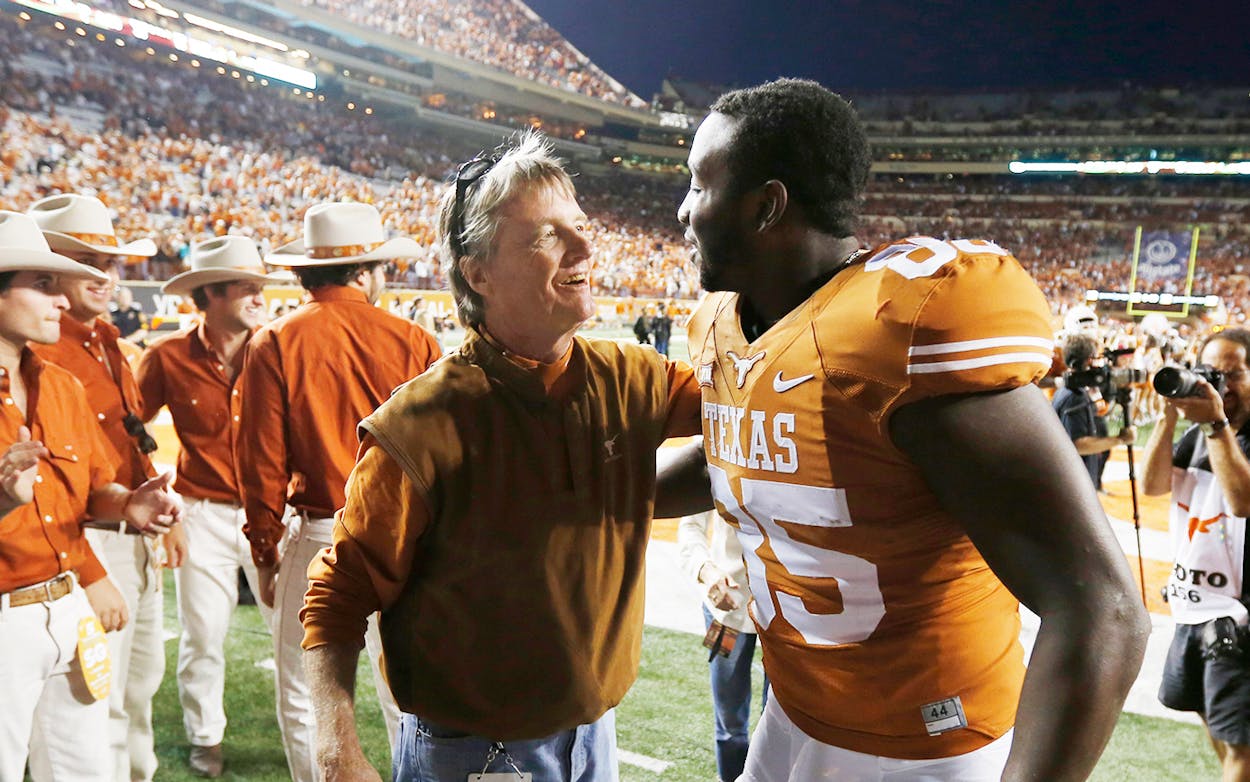“We shall not look upon his like again.”
If Bill Powers knew we were saying this about him, he might correct us, pointing out that Hamlet said “I,” not “we.” And that shows why we won’t see his like again: Bill was a chemistry major who knew Shakespeare, a naval officer who quoted Sophocles, a shrewd navigator of legislative politics who was the darling of academics, a big-time administrator who genuinely loved athletics, a beloved teacher who was also a tough negotiator, and a lawyer who was admired by the finest lawyers and judges.
The best measure of Bill Powers’ career as a professor, dean, and president at the University of Texas is the outpouring of respect, gratitude, affection, and love that has flowed upon his death from his former students, faculty, and the lawyers and judges who knew him.
He was my colleague, co-author, and friend for 40 years. He could be unsparing. Speaking at my retirement dinner in 2017, he reminded the assemblage that when Reba McIntyre was young I confidently predicted she would never make it in country music. But he was also loyal. When he was dean of the law school and I was having an issue with the university administration, he backed me at considerable risk to his own future.
Some of the obituaries have emphasized the controversies that erupted during his presidency at UT. Of course he was controversial; by the time he was appointed in 2006, the days of university presidents basking in tranquil honor were long past. The University of Texas was enmeshed in all the contentious issues roiling campuses, from affirmative action and escalating tuition to free speech and bloated athletic departments.
One of UT’s controversies arose when some of the UT regents sought to impose corporate-style accountability measures on the faculty. The objective was not itself unwelcome to Bill. As dean of the law school, he had been tough on faculty members who weren’t pulling their weight and he rejected claims that any restriction on professors is an affront to academic freedom. But he understood that tying faculty members’ pay to the revenue they generate is inconsistent with the aims of a great university, and he mobilized legislators and alumni who shared his view. Equally important, he mobilized the faculty; he understood that his defense of free intellectual inquiry would have little force if it didn’t have the backing of the faculty.
Powerful people weren’t accustomed to having a mere president rebuff them. Bill paid a price for his courageous stands on this and other issues. He once told me, “I get up every morning wondering what shoe is going to drop today.” Perhaps the highest price is the risk that he might be remembered as a controversial president rather than the great one that he was.
David Anderson is professor emeritus at the University of Texas at Austin School of Law. He retired after 45 years of teaching torts and mass media law. Professor Anderson was also a lawyer and contributing editor for Texas Monthly from 1973 to 2016.
- More About:
- Higher Education
- Bill Powers
- Austin






